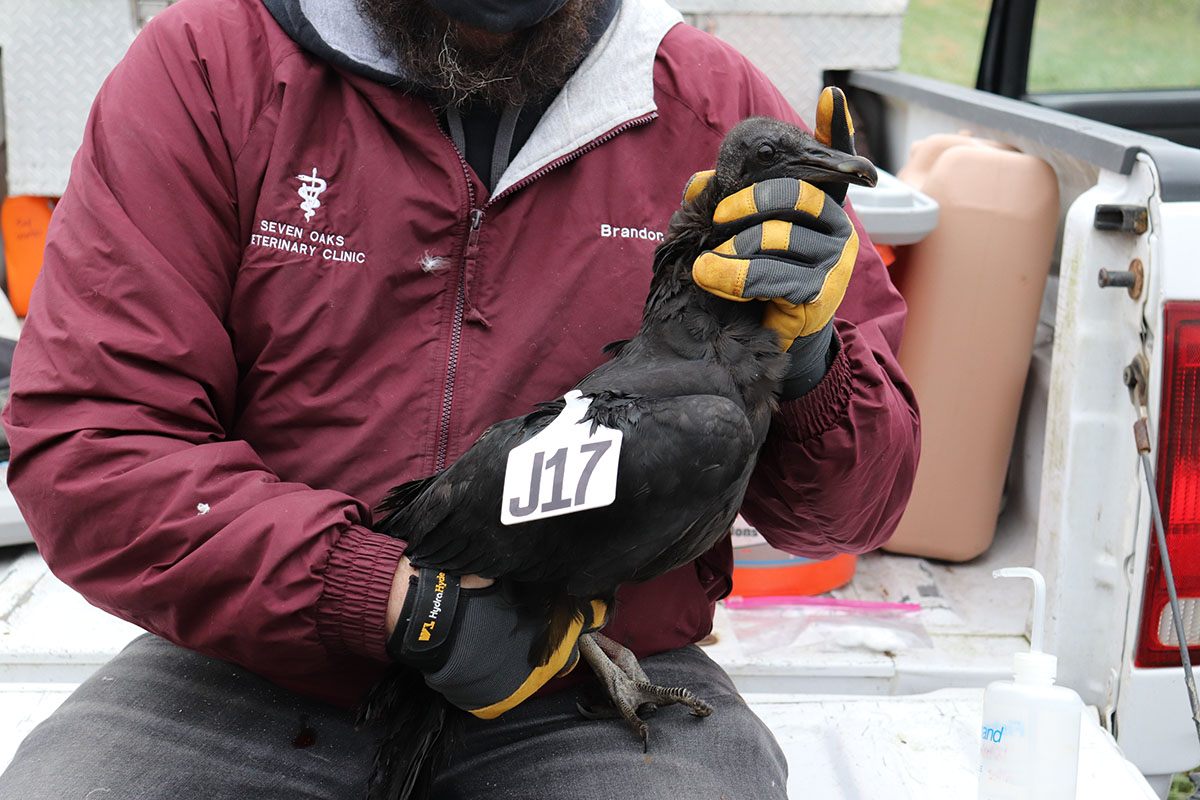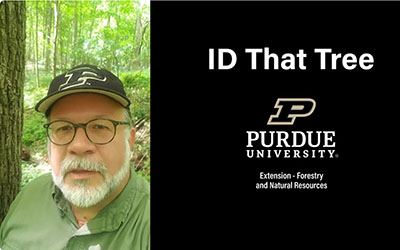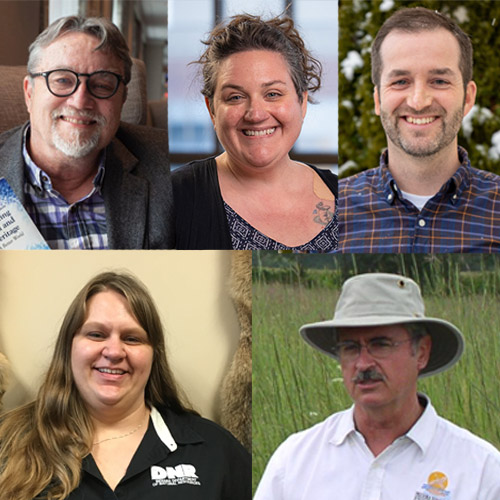Forestry & Natural Resources
Black Vulture Research Highlighted by NY Times
Mar. 25, 2021
By Wendy Mayer, Communications Coordinator
By Wendy Mayer, Communications Coordinator
Vultures have a role to play as nature’s garbagemen, cleaning up animal carcasses, but what happens when a species goes from scavenging to harassing and even preying on livestock?
Pat Zollner, professor of wildlife science, along with PhD student Marian Wahl and their partners with the USDA Wildlife Services program are investigating black vultures in Indiana in order to better understand vulture ecology as well as to develop methods to mitigate future harm to Indiana and Kentucky livestock.
“Black vultures are relatively new to Indiana and Kentucky, they have been gradually moving in from the south, and right now there are a lot of unknowns that we need to figure out in order to make sound management decisions,” Wahl said. “Some of the pressing questions that we have are how many black vultures do we have here, where are the birds located, how and where is a conflict occurring, and how effective are different approaches to managing black vulture problems.

The aim of the research is two-fold. First, they are looking to see what causes some black vultures to become aggressive predators of livestock, instead of simply scavengers. Second, they are looking to learn signs that can determine whether an animal has been killed by vultures or simply scavenged, an important piece of evidence for livestock producers filing claims to the U.S. Department of Agriculture’s indemnity program hoping to recover compensation for their losses.
In order to achieve its goals, the research team is requesting the assistance of livestock producers through an online survey and also with the donation of calves believed to have been killed by black vultures.
“Vultures are cleaning up the carcasses of dead animals, and that’s an important role,” Zollner said. “If they come across a stillborn calf, they’ll eat that, but some of these birds go after young animals or even calves as they’re being birthed. We don’t know enough about the biology of these vultures to understand why some birds become predatory or the differences between how they scavenge and how they kill an animal. If we can get enough of these predated calves to study, we can learn that.”
The survey, a collaboration between Zollner, Wahl, Ph.D. student Brooke McWherter and professor of natural resources social science Dr. Zhao Ma, will explore broader concerns related to livestock losses in the state in addition to assessing producers’ experiences with black vultures, both positive and negative. Survey information will help the researchers understand how extensive the conflict with black vultures is in the region, by learning more about where black vultures are causing damage and how much, and assist them in formulating better ways to manage the species.
The Qualtrics online survey is no longer available. It only took 15-20 minutes to complete. The survey is anonymous and data collected with be presented only in summary form and not via individual responses.
The team also is asking producers to donate calves they believe were killed by black vultures. Autopsies will be performed on the animals free of charge. To donate a calf, call or text Wahl at 317-647-5294. More information on donation is available here: Contact Purdue FNR With Any Livestock Loss Due to Vultures.
The team’s research has been recently featured in the Perry County News and Spencer County Journal Democrat and also in the March edition of Beef Monthly. The Beef Monthly interview begins at the 21-minute mark.
To learn more about Purdue’s black vulture research project, visit its website: Black Vulture Ecology and Human-Wildlife Conflicts.






